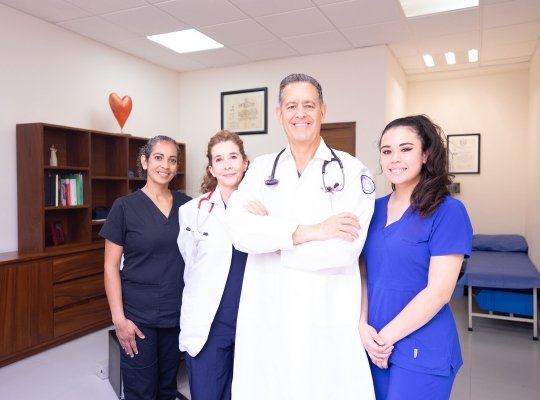Want to make a difference in healthcare as a veteran? You’ve reached the proper location if that’s the case. Pursuing a profession as a doctor is difficult yet gratifying because of the influence you may have on people’s lives. And with VA educational benefits, you may fulfill your goal of becoming a doctor without going into debt. This article will walk you through the process of using your VA educational benefits to become a medical doctor or physician. Let’s embark on this voyage together, then!
If you’re a veteran thinking about a future in medicine but aren’t sure how to best use your VA education benefits, read on. In this post, we’ll explain how to become a doctor and discuss the VA perks accessible to service members who want to go to medical school.
Common Services Provided by Medical Doctors
Medical physicians (MDs) are doctors with advanced degrees who focus on the diagnosis, treatment, and prevention of illness and injury. Some of the most common services offered by doctors are as follows:
Health Maintenance-
Doctors perform an invaluable service by providing preventative care. Medical doctors undertake regular checkups and screenings for ailments including cancer, high blood pressure, and diabetes. They do more than only give out immunizations and health advice to their patients.
Disease and Illness Diagnosis and Treatment-
Medical professionals are counted on to identify and treat a wide range of illnesses and injuries. Medical doctors assess their patients’ conditions, determine what tests are necessary, and create individualized treatment plans by drawing on their extensive training, education, and expertise in the field.
Medication Prescriptions-
To treat a variety of ailments, medical professionals can legally prescribe drugs. They select the best treatment for a patient by looking at their symptoms, medical history, and test findings.
Methods of Surgery-
All kinds of surgical treatments, from simple outpatient procedures to major operations, are within the scope of a medical doctor’s training. They assure safe and effective surgical results by collaborating closely with surgeons, anesthesiologists, and nurses.
Care for Long-Term Illnesses and Disabilities-
Medical professionals have an important role in the treatment and management of long-term illnesses. They help people live better with their ailments by giving them continuous care and emotional support.
In the event of a medical emergency, medical professionals are frequently called upon to provide swift and effective treatment. They rescue lives and stabilize patients in emergency rooms, ambulances, and other critical care settings before sending them to specialist care units.
How to become a physician
In order to practice medicine as a doctor, you must first earn a medical degree, then finish a residency program in a specific medical field, then become board certified and licensed. The procedure to be followed is as follows:
Complete your undergraduate degree at an accredited institution.
The first thing to do is to earn a bachelor’s degree in something related, such a pre-med program that emphasizes the study of biological and chemical sciences prior to entering medical school. Pre-med majors aren’t the only ones who can go to medical school; as long as you’ve taken advanced math, chemistry, biology, and physics in college, you’ll be considered.
Obtain a passing score on the Medical College Admissions Test
Applying to medical school requires you to first take the Medical College Admission Test (MCAT) and get a passing score. The Association of American Medical Colleges (AAMC) offers a test that evaluates your knowledge and abilities via a series of multiple-choice questions. This helps the schools you’re applying to determine the likelihood that you’ll graduate with a medical doctorate. The AAMC offers a variety of study resources to ensure that all applicants are well prepared for the examination.
Register at Medical Colleges
In order to have a fighting chance of getting into medical school, you should strive for at least a 3.5 GPA throughout your undergraduate studies. To strengthen your application, you should also get clinical experience in medicine. Possibilities to get experience through study, volunteering, internships, or job shadowing should be taken advantage of. You may distinguish yourself from other applicants by highlighting your previous work experience. These extracurricular activities and their influence on your abilities, knowledge, and devotion can be detailed in the recommendation letter you send with your medical school applications.
Get a degree in medicine.
Doctor of Osteopathic Medicine (D.O.) or Medical Doctor (M.D.) degrees are required for entry into the medical profession. Both M.D.s and D.O.s utilize comparable approaches to treatments like medications and surgery, but DOs place extra emphasis on the patient as a whole, the musculoskeletal system, and the value of preventative care.
Full-time study for both sorts of medical degrees takes four years. Biology, anatomy, physiology, chemistry, laboratory work, medical ethics and legislation, and clinical rotations take up the first two years of medical school. The second and third years of medical school are dedicated to clinical rotations, or supervised patient care experiences in a variety of disciplines. You can choose to focus on pediatrics, neurology, obstetrics, or critical care as you move through your clinical rotations.
Take the licensing exam
Before proceeding with clinical rotations, you will need to take and pass the USMLE Step 1 exam in your second year of medical school. This examination will determine whether or not you are knowledgeable enough to begin clinical rotations. Part 2 of the USMLE is required to prove your competence as a physician before you may begin practicing medicine independently. This section of the test often occurs at the last stages of medical school or immediately thereafter.
Take part in a residency program
After completing medical school, the next step toward becoming a doctor is to enroll in a residency program in the area of medicine that most interests you. The American Association of Medical Colleges (AAMC) manages the Electronic Residency Application Service (ERAS), the system used to allocate residency positions.
While residencies are not limited to hospitals, that is where the vast majority of them are completed. Depending on your chosen area of concentration, you may anticipate to spend anywhere from three to eight years in school. You learn more sophisticated methods of diagnosis, how to manage uncommon diseases, and other skills specific to your field of expertise.
Obtain a license to practice medicine in your state
To become employed as a physician, you will need to obtain a medical license from the state in which you plan to work. In order to practice medicine in the United States, MDs and DOs must pass the United States Medical Licensing Examination (USMLE) Step 2. Get in touch with your state’s medical board to learn about the specific laws and regulations that apply to you. All of them need to be renewed on a certain schedule and include some amount of ongoing study.
Get more credentials
Although certification is not strictly necessary for a career in medicine, it may certainly improve your prospects. Certifications are available to doctors who complete a lengthy residency program (up to seven years) and a test administered by the American Board of Medical Specialties (ABMS) or the American Osteopathic Association (AOA). Obtaining a certification shows patients and other doctors that you are dedicated to providing excellent treatment and that you are an expert in your field.
Concluding Remarks
Learning to practice medicine is a difficult but potentially rewarding endeavor. Using your VA education benefits can allow you to follow your ambition of becoming a doctor without having to sacrifice your current lifestyle. It’s important to learn about the VA education benefits to which you’re entitled and to consult with a VA representative to figure out what’s best for you.
The Department of Veterans Affairs (VA) provides several opportunities for veterans who are interested in a healthcare profession. Benefit from these tools and get moving on your path to become a doctor right away.







